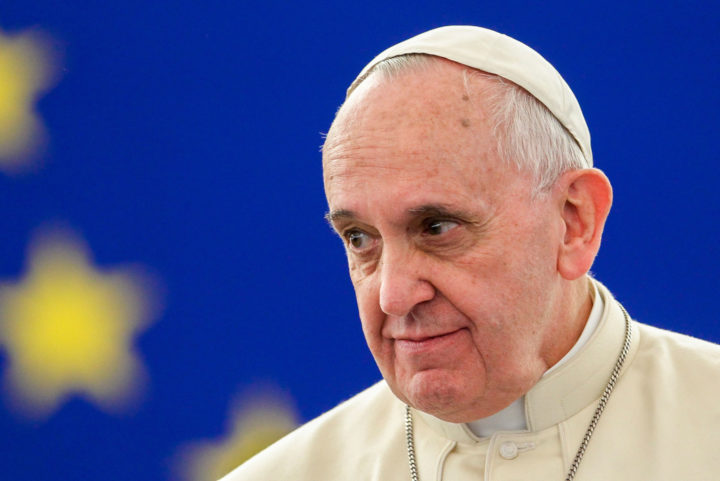Papal encyclical is opportunity to change global development paradigm
Comment and reaction to the new Papal encyclical
By George Smeeton
info@eciu.netShare
The encyclical issued today by Pope Francis on the environment and climate change confirms the moral dimension of the challenges facing the world, says Sir Crispin Tickell, Former Ambassador to the United Nations. Dr Camilla Toulmin, Director of the International Institute for Environment and Development (IIED), says that the Pope’s intervention offers an opportunity to change the global development paradigm towards a fairer, more sustainable growth model.

Professor Hugh Montgomery, Director of the Institute for Human Health and Performance at University College London, said that climate change threatened to undermine global gains in health and development, and Michael Grubb, Professor of International Energy and Climate Change Policy at University College London, said that the government's reaction raised questions as to the consistency of the government's approach to the issue.
Dr Toulmin said: "The clear link that Francis draws between poverty and the environment, focusing on how climate change affects the poorest among us most, is a concept that IIED is very familiar with through our work. The messages that particularly resonate with us are the links between social justice and climate change, given our focus on least developed countries where poverty and vulnerability intersect with greatest force.
"The principle of equity is core to IIED and we, like Pope Francis, believe that climate change offers a great opportunity to change the global development paradigm, away from a fossil fuel dependent society, and towards a fairer, more sustainable growth model that reduces poverty and helps us live within the boundaries of our shared planet."
Dr Toulmin said that 2015 is a critical year for environment and development issues, with the 'big three' summits that will shape the world’s future starting next month with Financing for Development in Addis Ababa, the ratification of the Sustainable Development Goals (SDGs) in New York in September, and the UN climate conference in Paris in December.
Sir Crispin Tickell said: “This encyclical confirms the moral dimension of the problems our species is creating for the environment.”
Professor Montgomery said: “The global health community is becoming increasingly concerned that climate change threatens to undermine many of the gains that have been made in improving global health and development in recent years. It is therefore welcome that the Pope is highlighting the threat that climate change poses, particularly to the most vulnerable people in the world.
"It’s now clear that there is a growing social, economic, scientific and now faith-based consensus in favour of urgent action to address the problem, which gives a strong mandate to political leaders ahead of this year’s critically important UN climate summit in Paris.”
Professor Grubb said: “This will surely be remembered as the day it became clear that the UK has two governments. One that welcomes today the Pope’s Encyclical, is pressing for stronger action on climate change, which signed an unambiguous cross-party pledge to phase out coal, and which committed in its manifesto to deliver clean renewable energy as cost-effectively as possible.
“The other is the government which declared today it will prematurely end supports for the cheapest and most cost-effective of the UK’s renewable resources, which has injected fear and uncertainty into renewable energy investors, which seems set to cut back support for energy efficiency programmes which have helped to cut consumer bills and avoided the need for billions of new investment, and which proposes to slash the budget of the Department charged with implementing all this.
“Sooner rather than later David Cameron must clarify which government he is actually leading.”